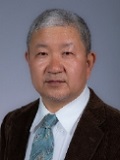Department of Mechanical Engineering, Iowa State University, Ames, IA, USA.
Interests:
2D atomic layer materials; Energy transport-state resolved Raman; Interface energy transport; Laser-material interaction; Raman-based technologies; thermal conductivity measurement; Thermal transport in micro/nanoscale and structured materials
Website:
Bio:
Dr. Xinwei Wang is the Anson Marston Distinguished professor and Wilkinson Professor in Interdisciplinary Engineering at Iowa State University (http://web.me.iastate.edu/wang). He obtained his Ph.D. from the School of Mechanical Engineering, Purdue University in 2001, and had his M.S. (1996) and B.S. (1994) from the University of Science and Technology of China. Over more than two decades, he has led his laboratory to develop advanced and novel techniques for characterizing thermophysical properties at the micro/nanoscale, and studying physical phenomena in laser-material interaction. The TET, TPET, PLTR, ET-Raman, and FET-Raman techniques invented by his lab represent some of the most advanced techniques for measuring thermal diffusivity and conductivity of 1D and 2D micro/nanoscale materials. His lab reported the first work on distinguishing the optical and acoustic phonon temperatures under intense photon excitation, and determining their energy coupling factor. His work on conjugated phonon and hot carrier transport represents the first accomplishment in distinguishing these two physical processes and quantifying their transport diffusivities. The thermal reffusivity theory developed in his lab provides a novel way to characterizing material’s structure domain size, similar to that measured by x-ray diffraction, but has unique applications for nanomaterials. He received the inaugural Viskanta Fellow Award of Purdue University in recognition of his pioneering and independent work in thermal sciences. He is the Fellow of ASME and Associate Fellow of AIAA.


